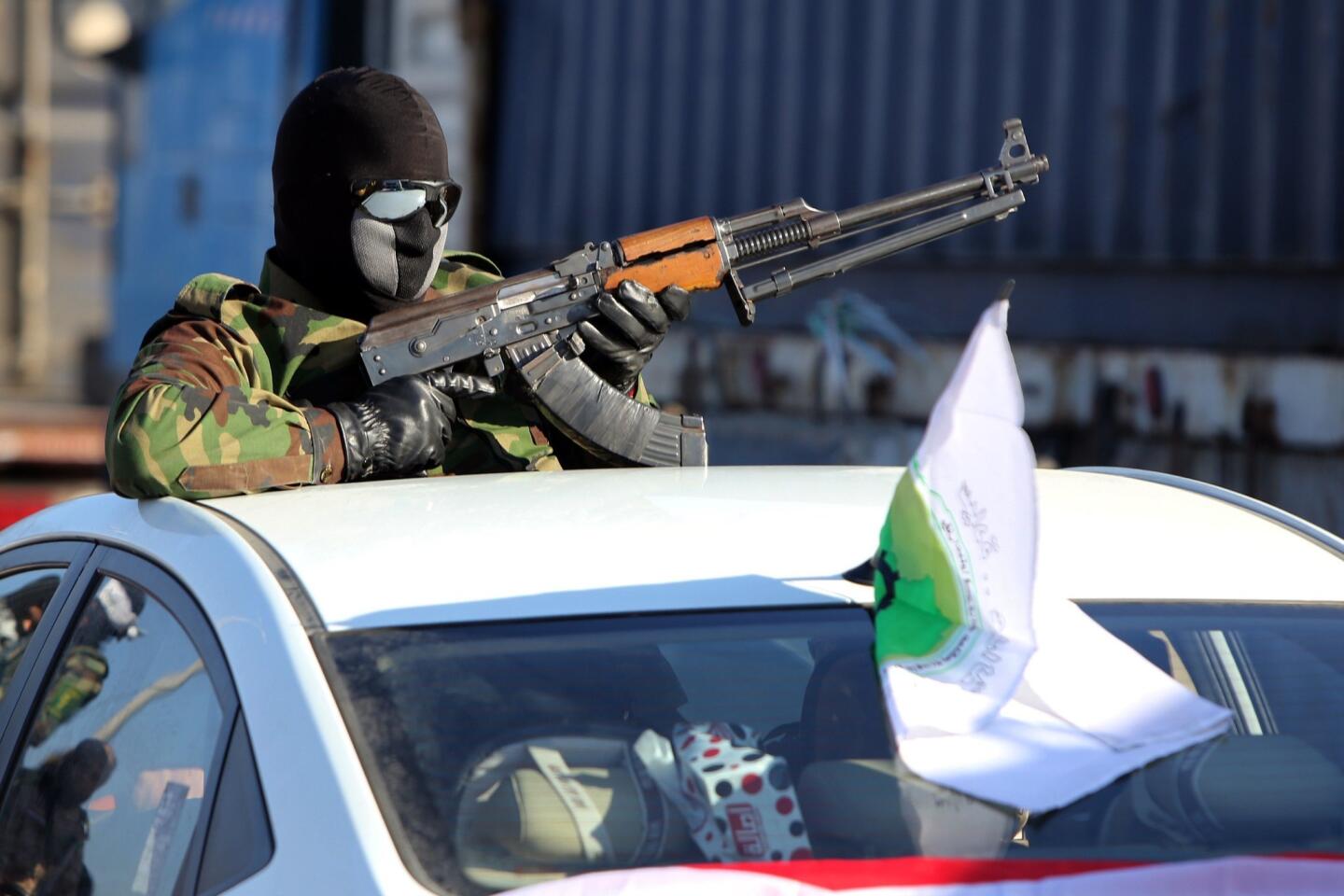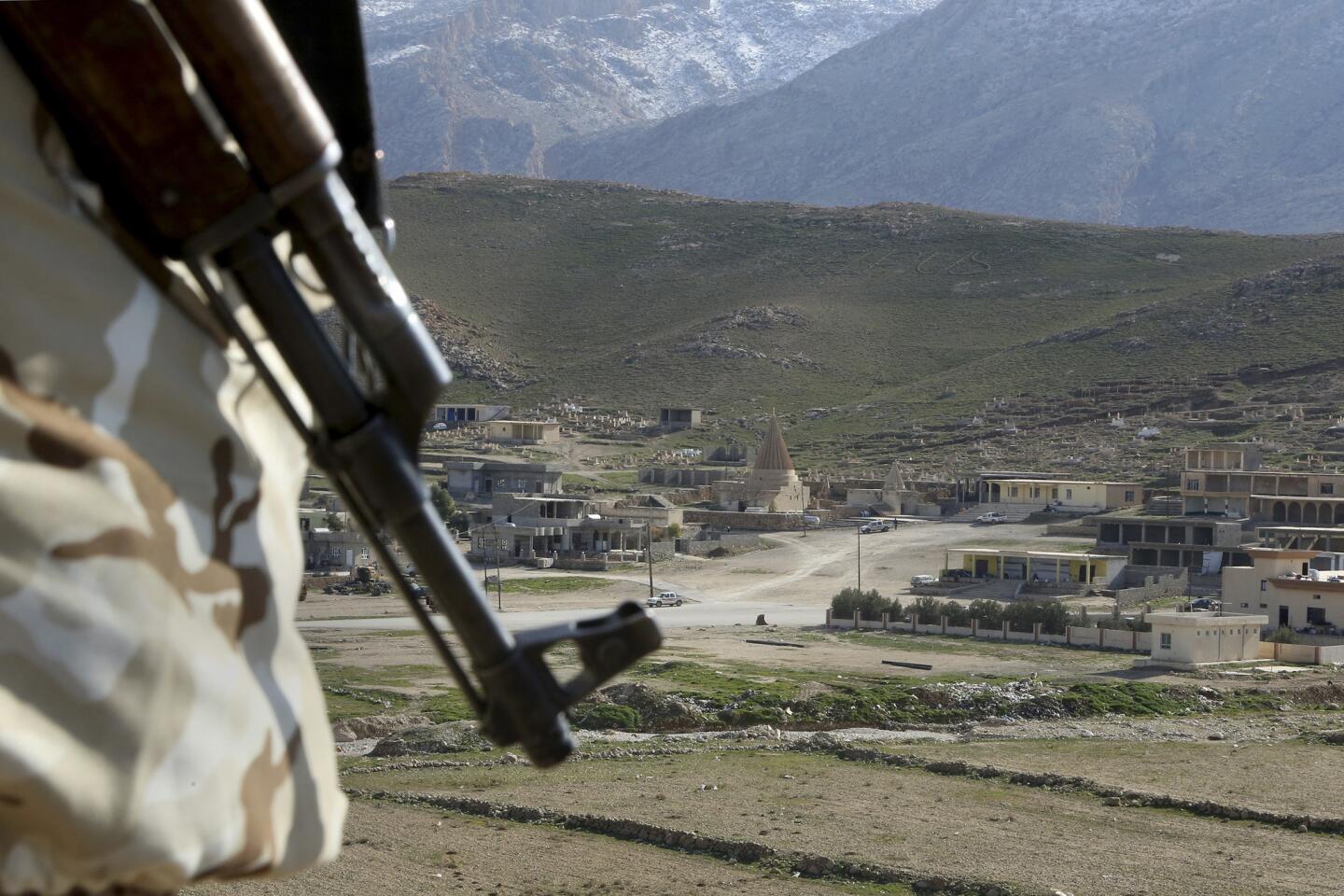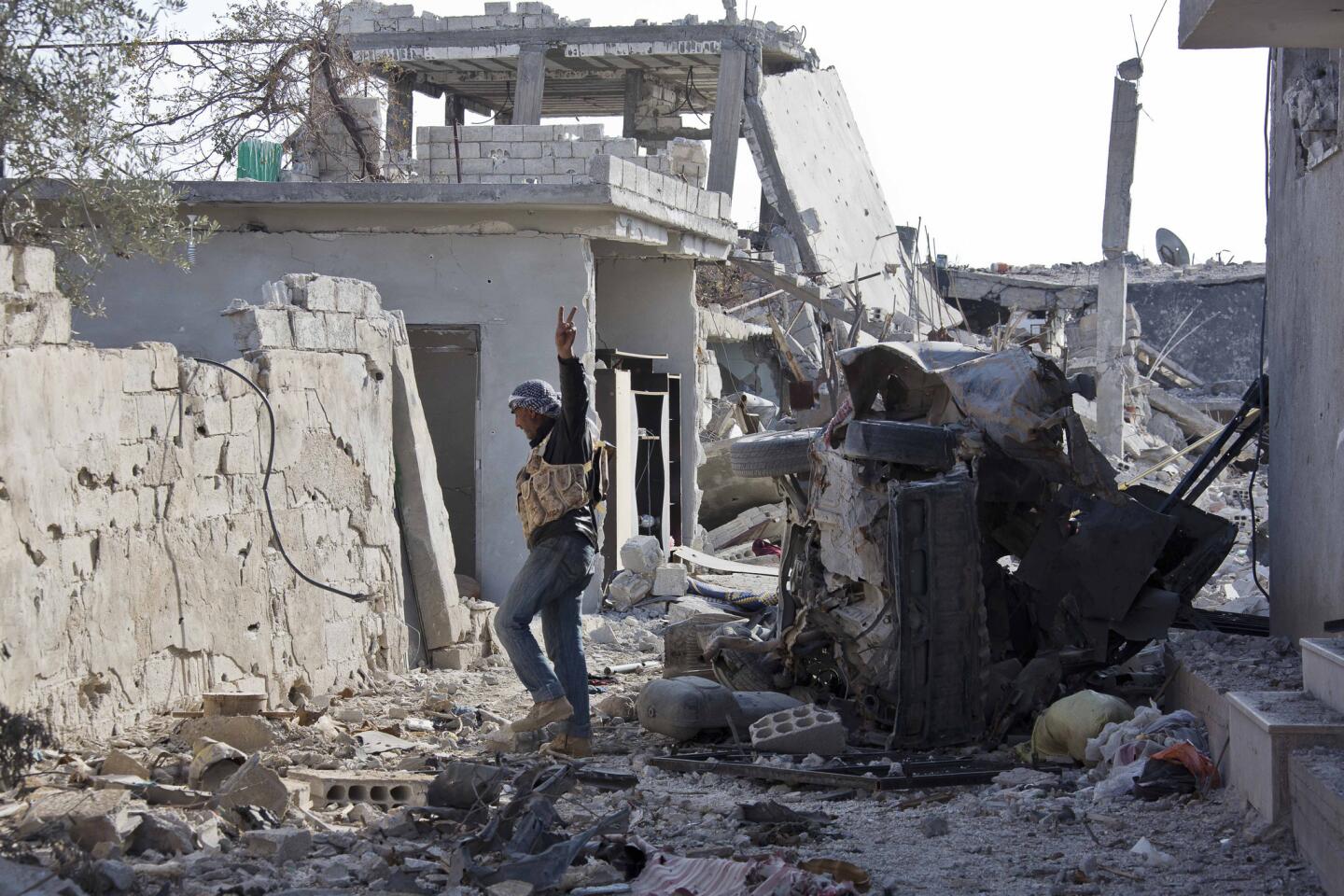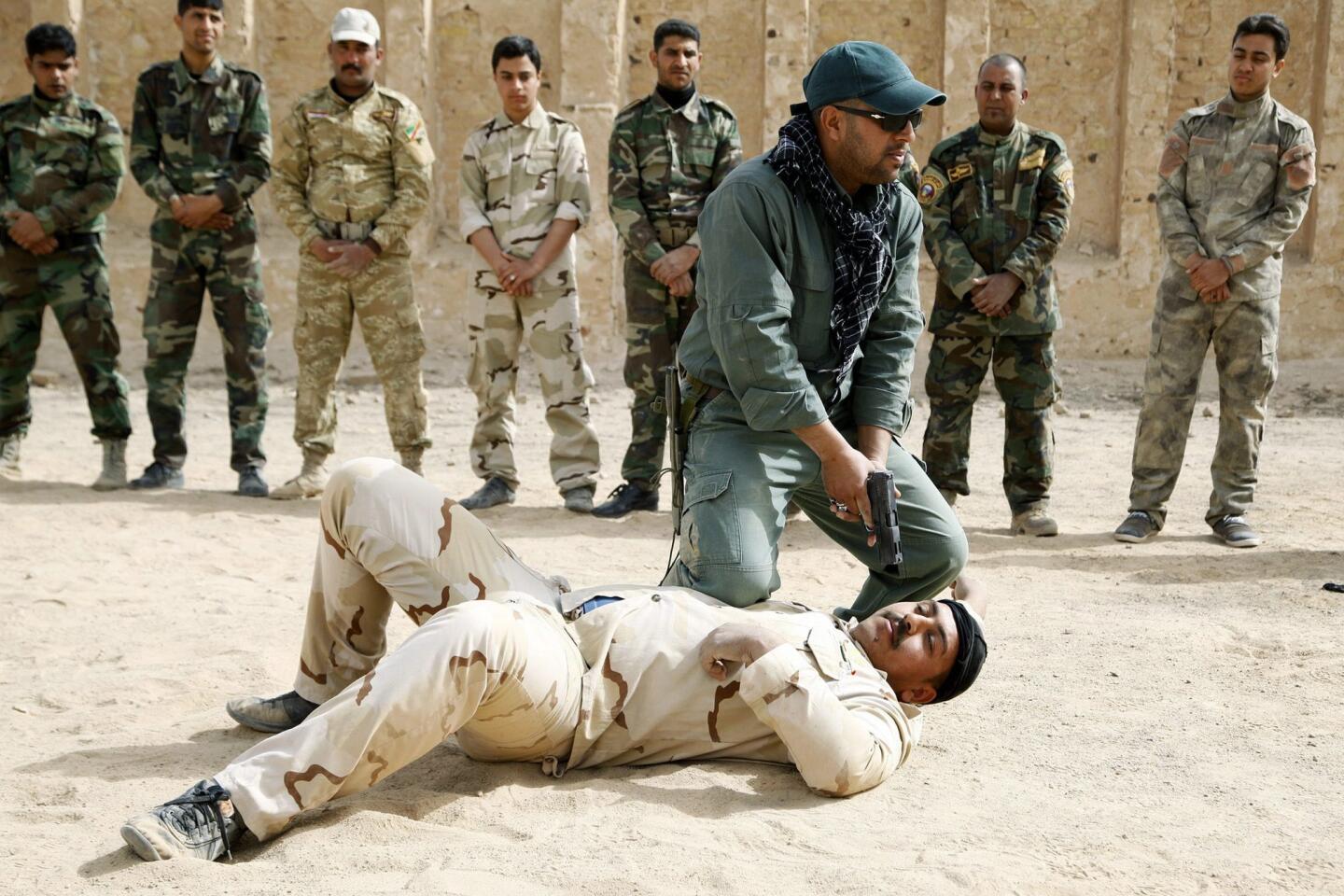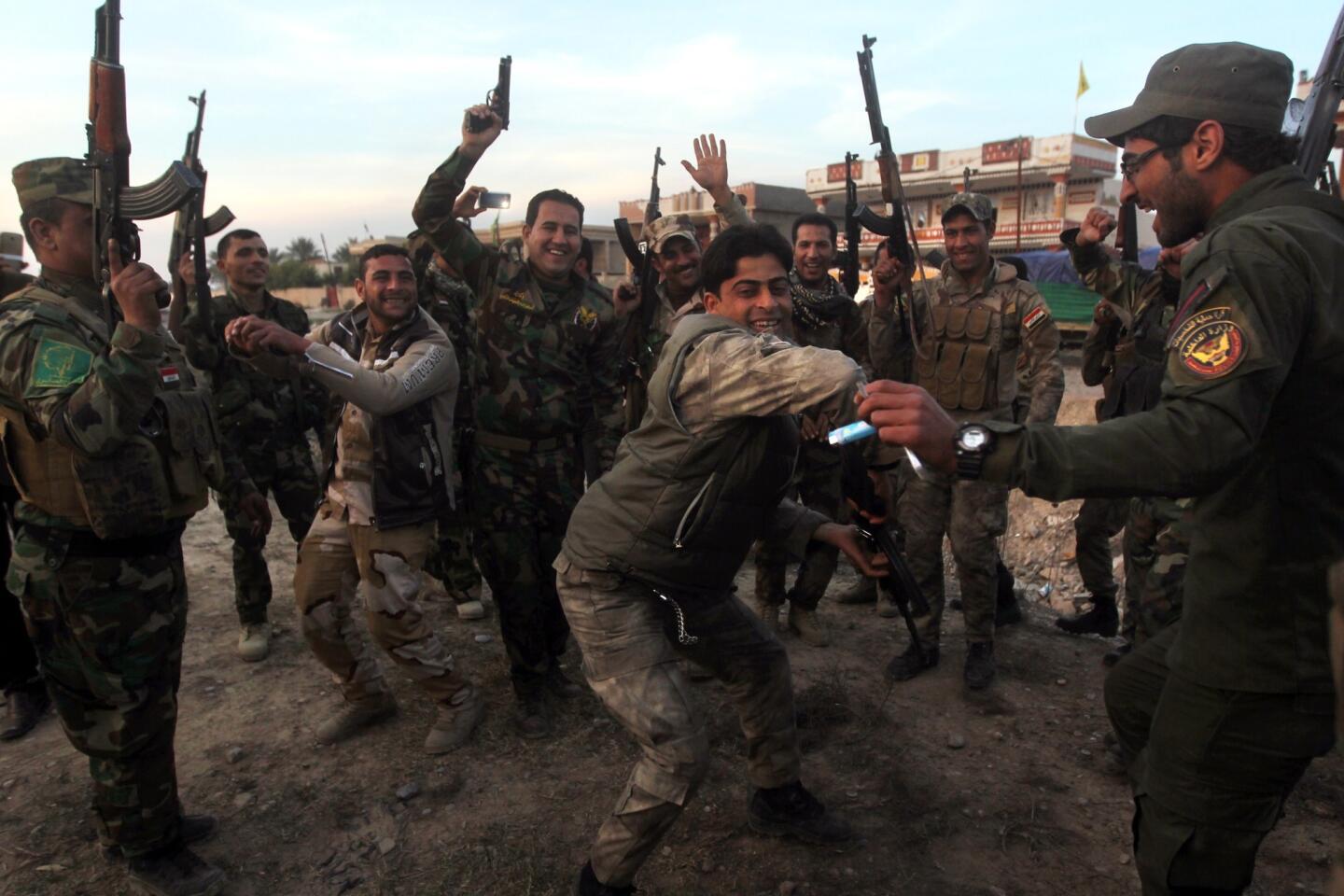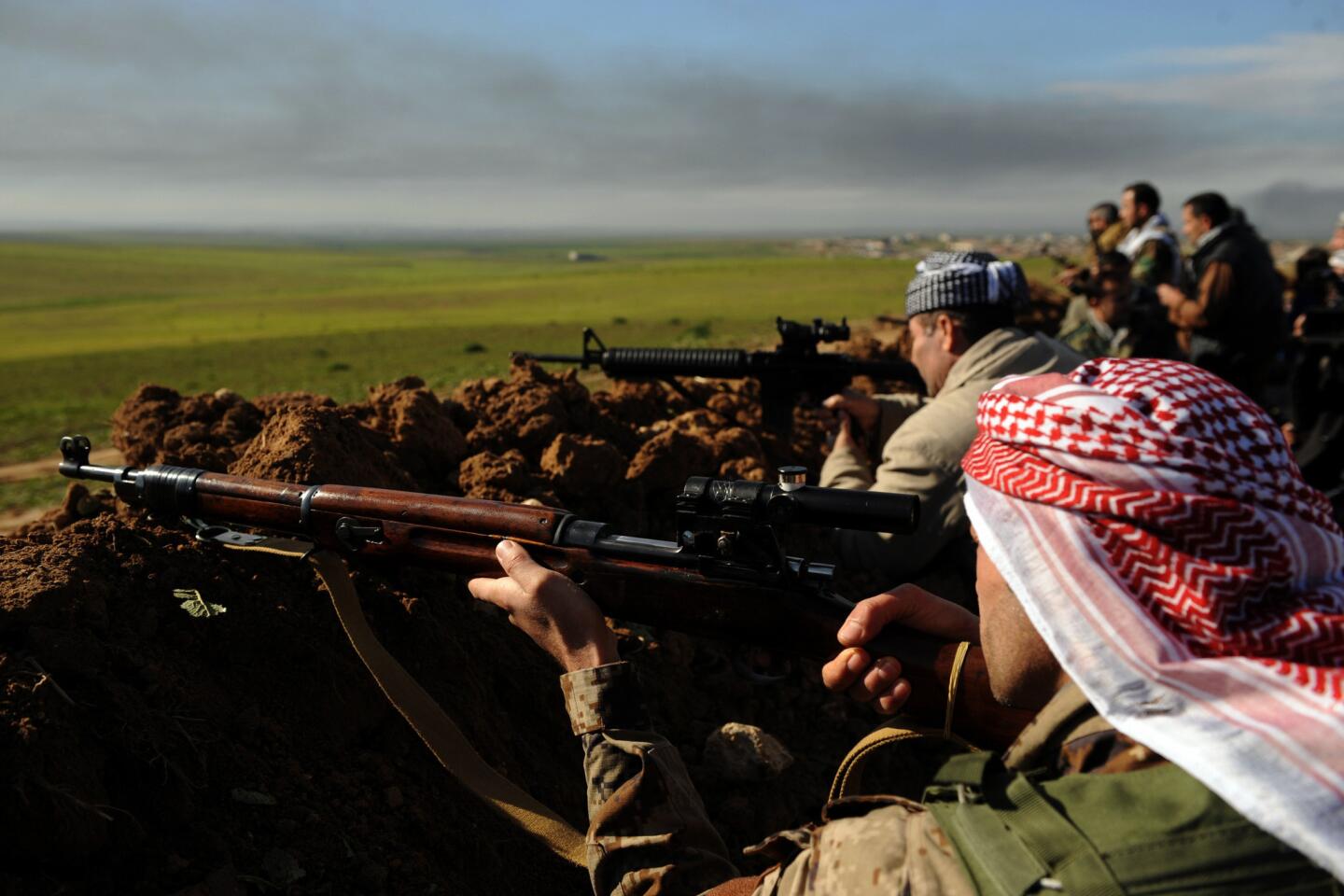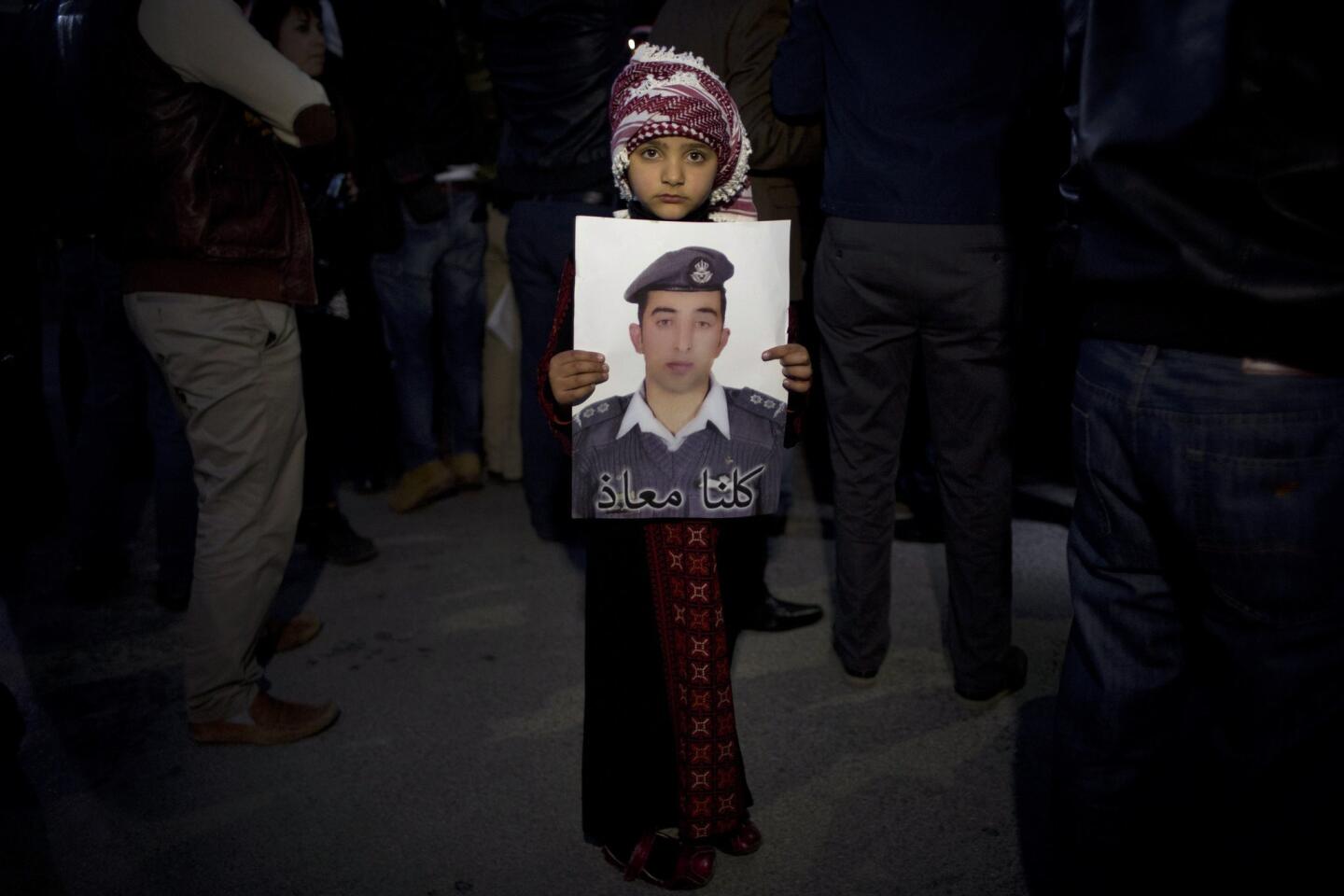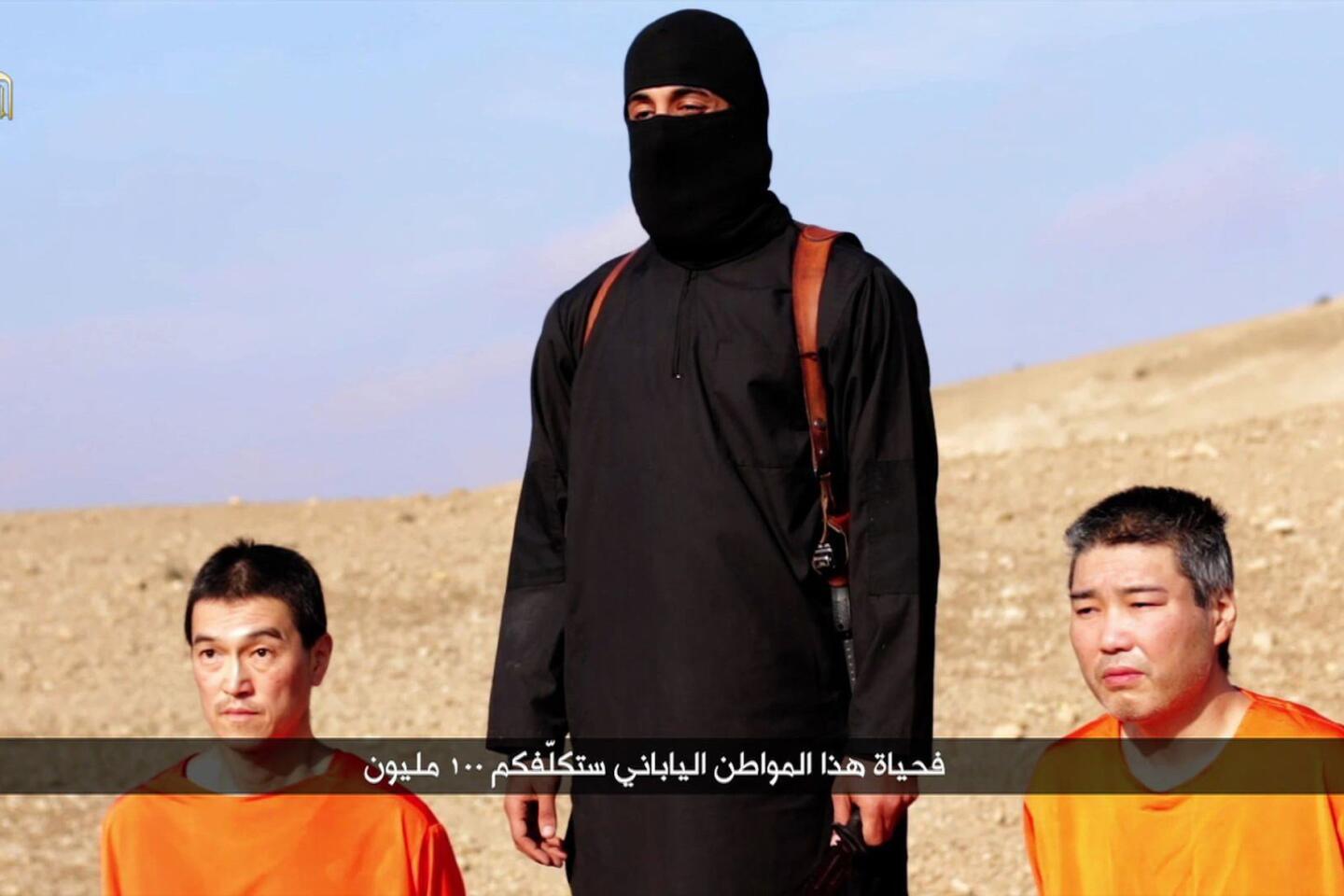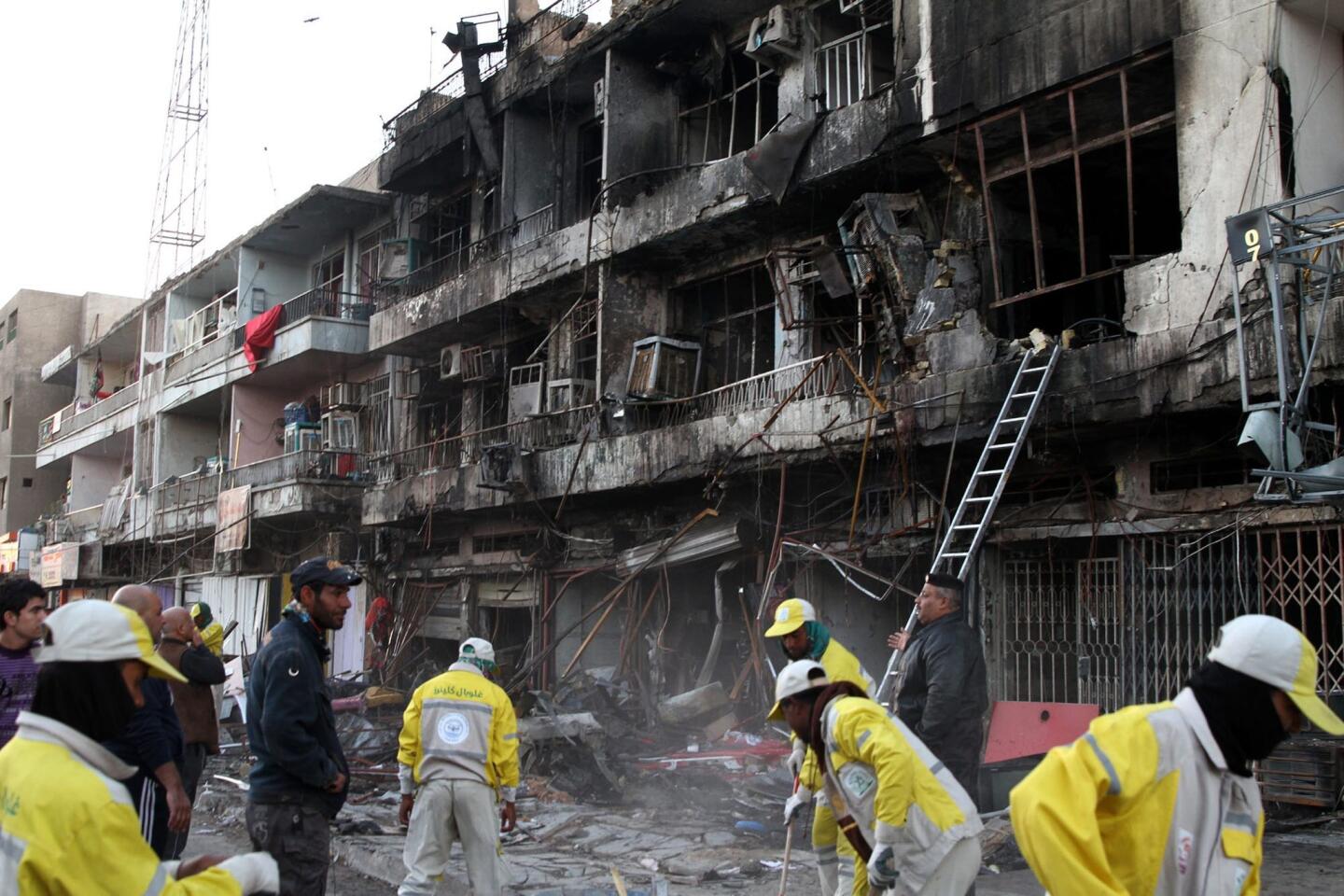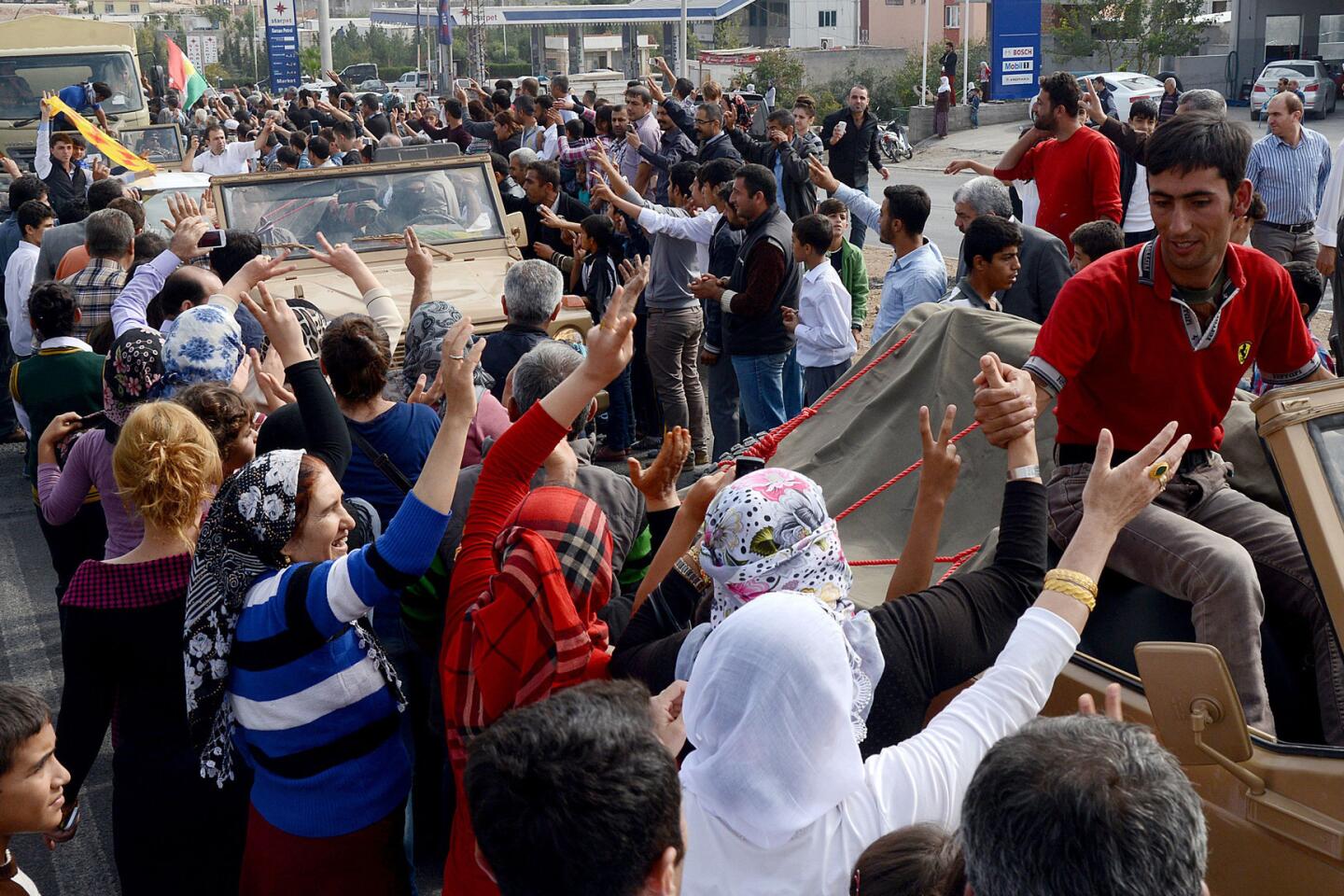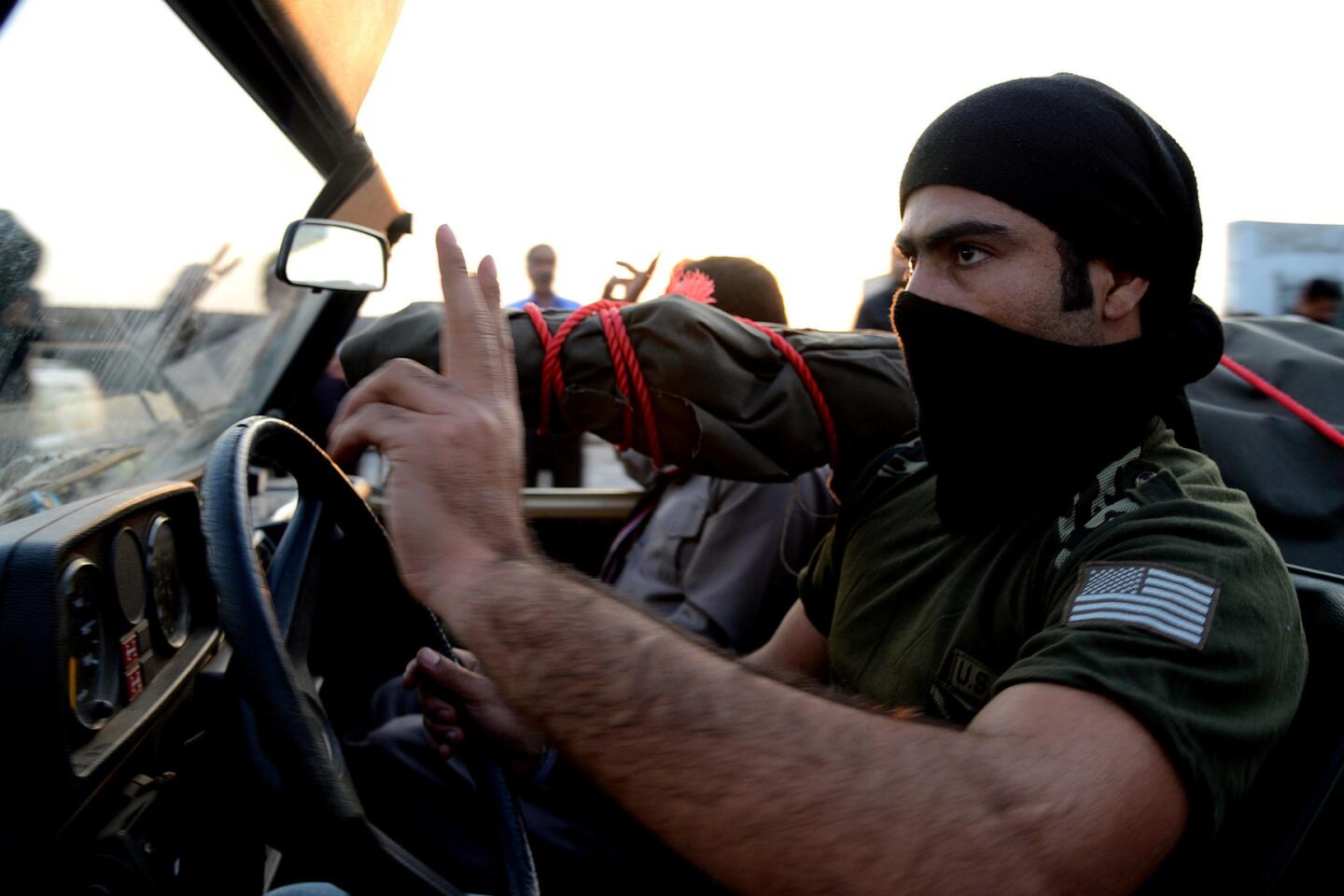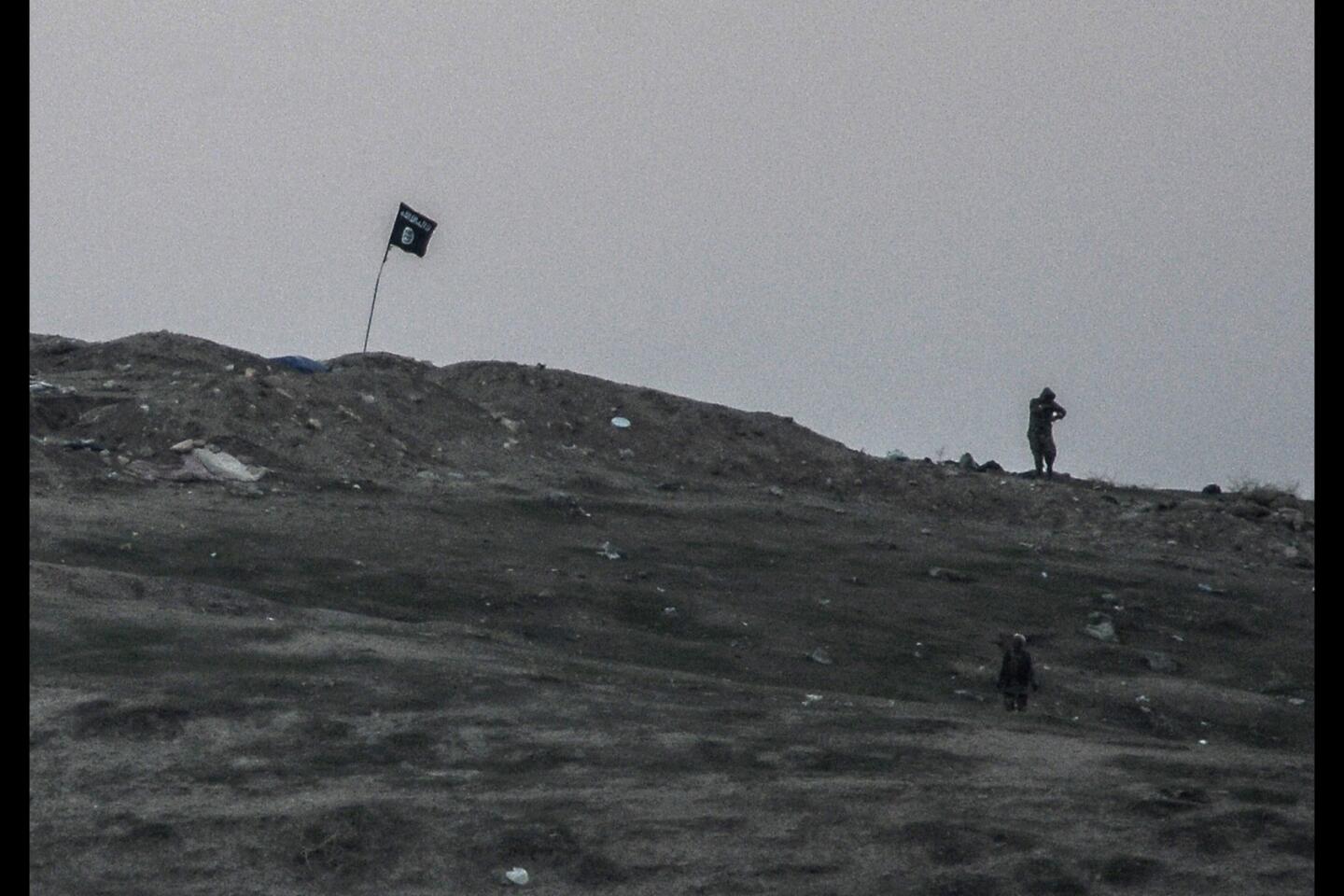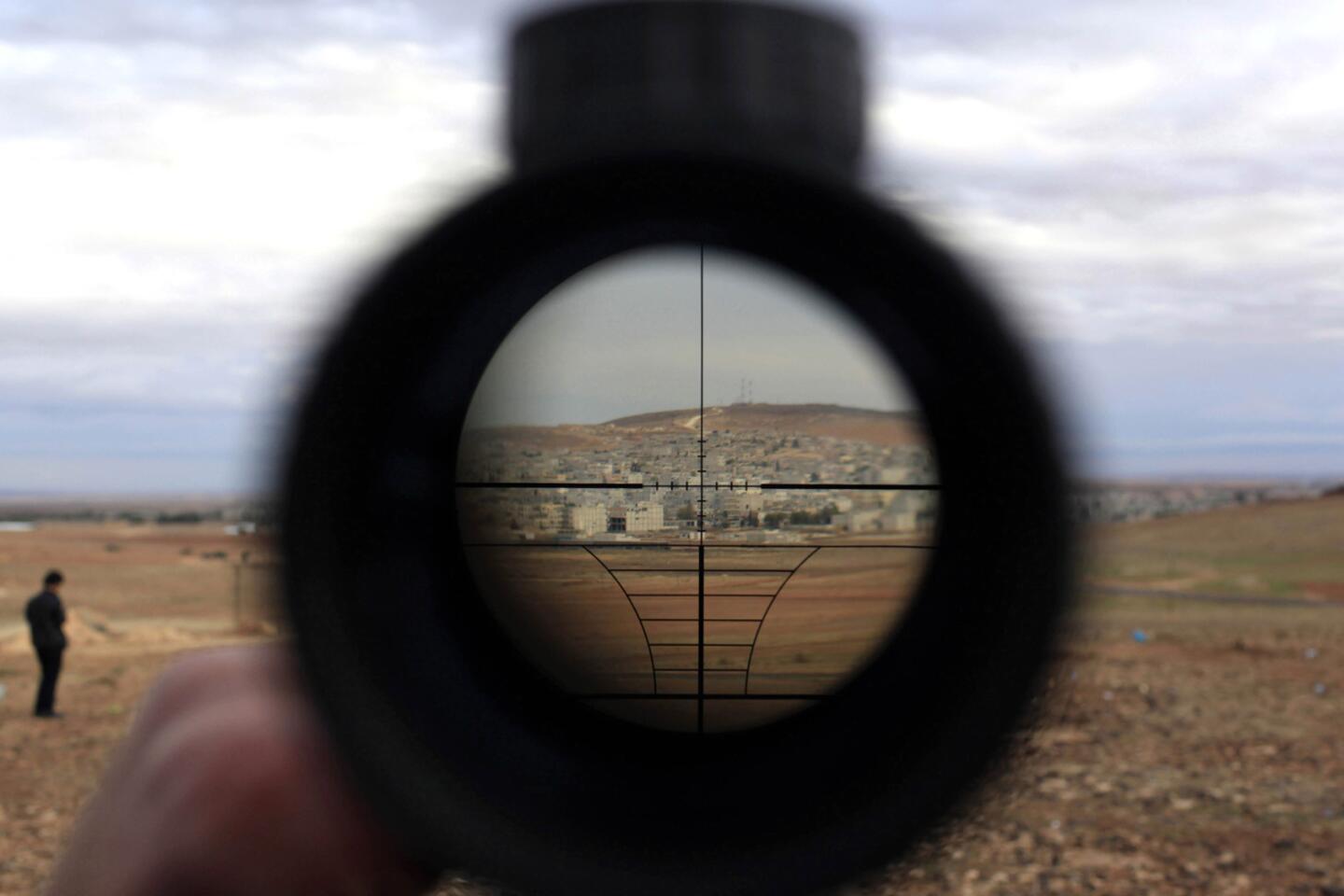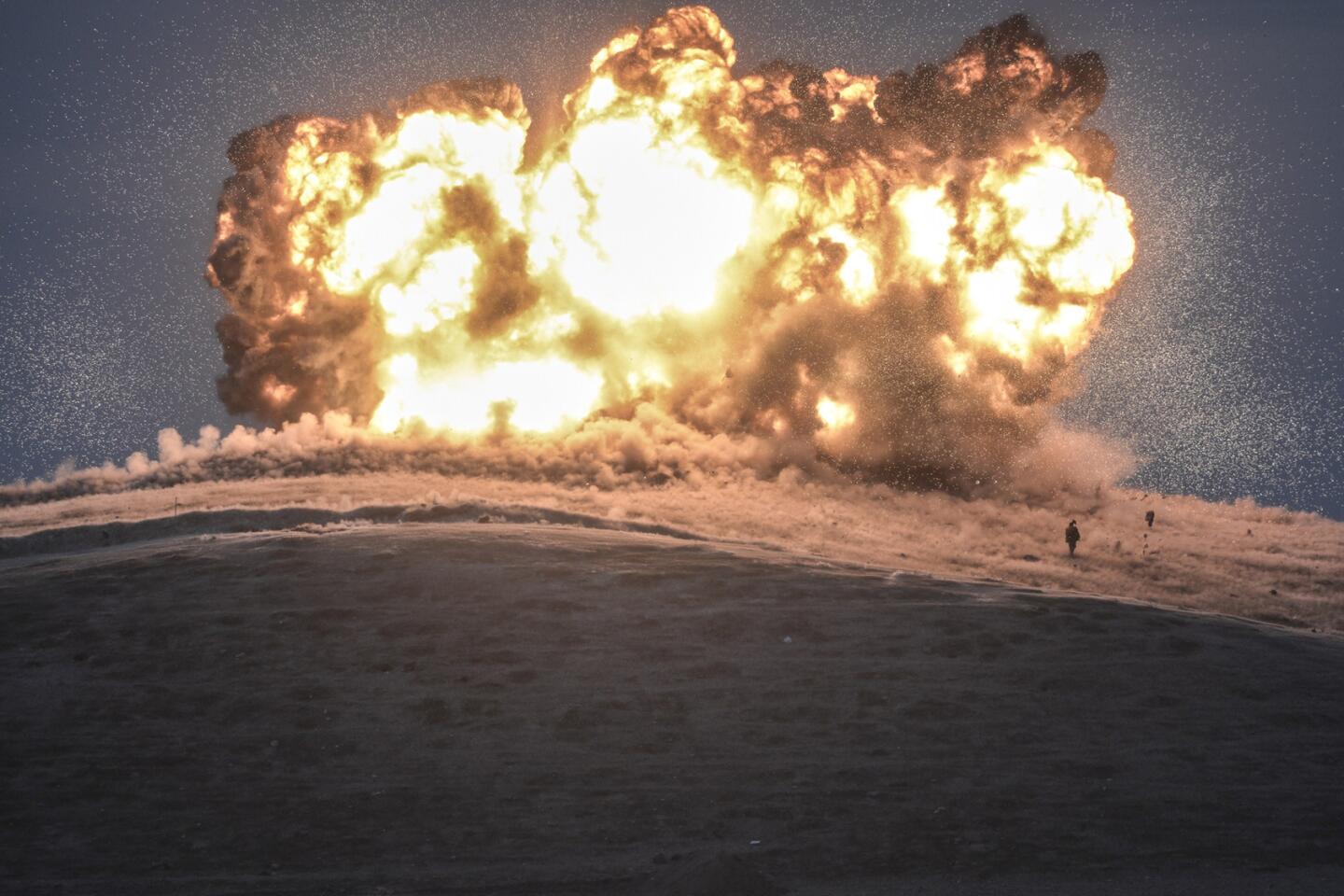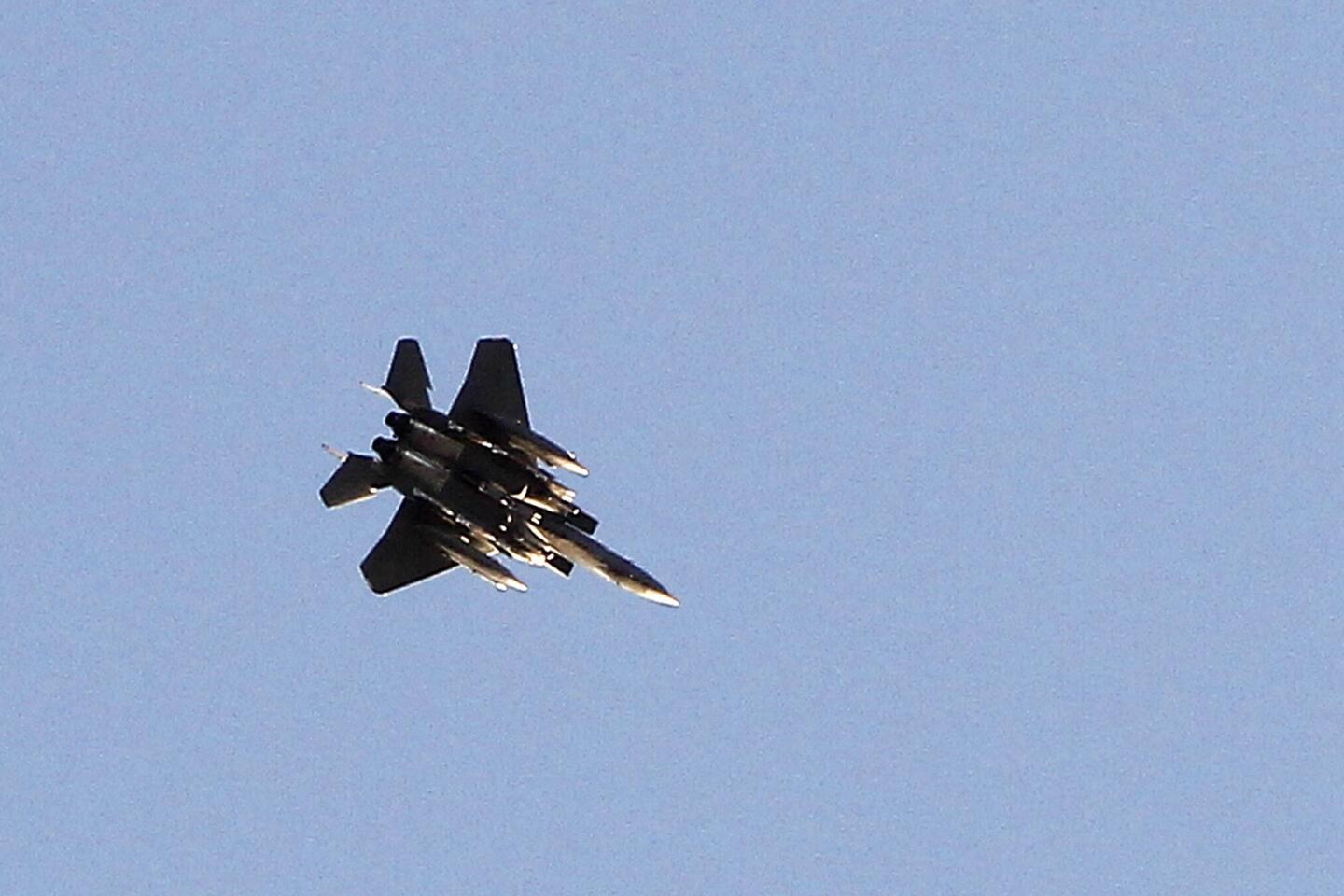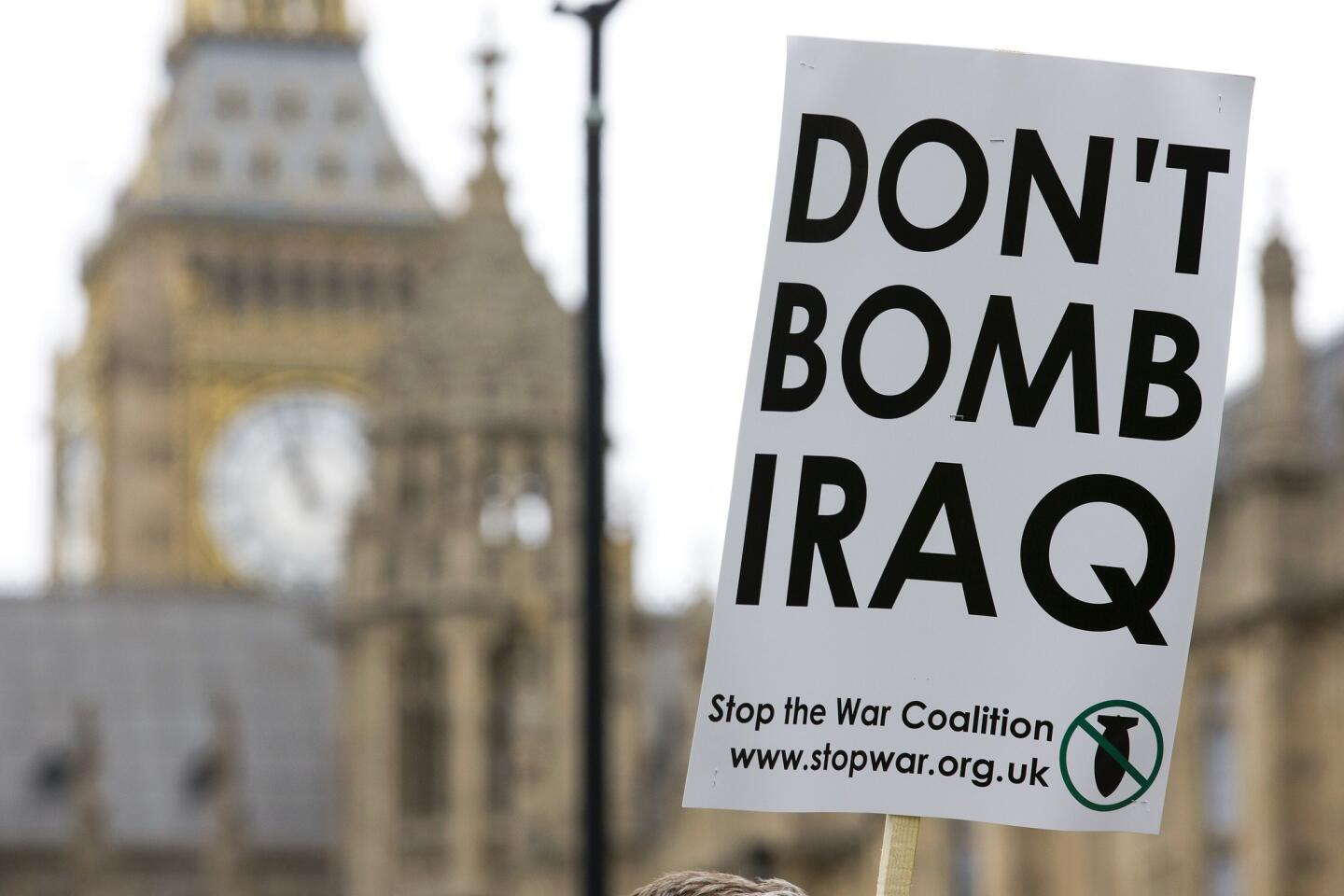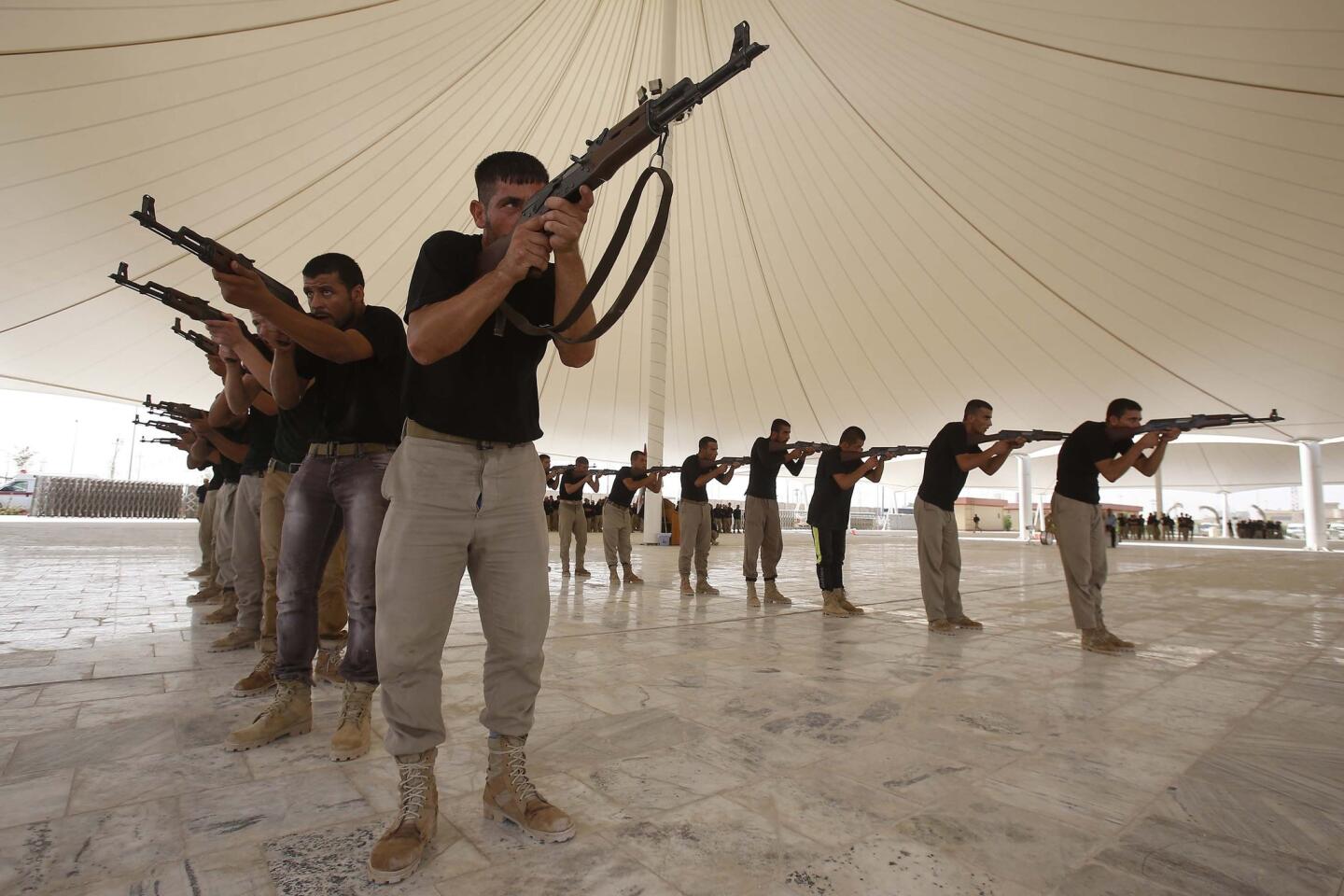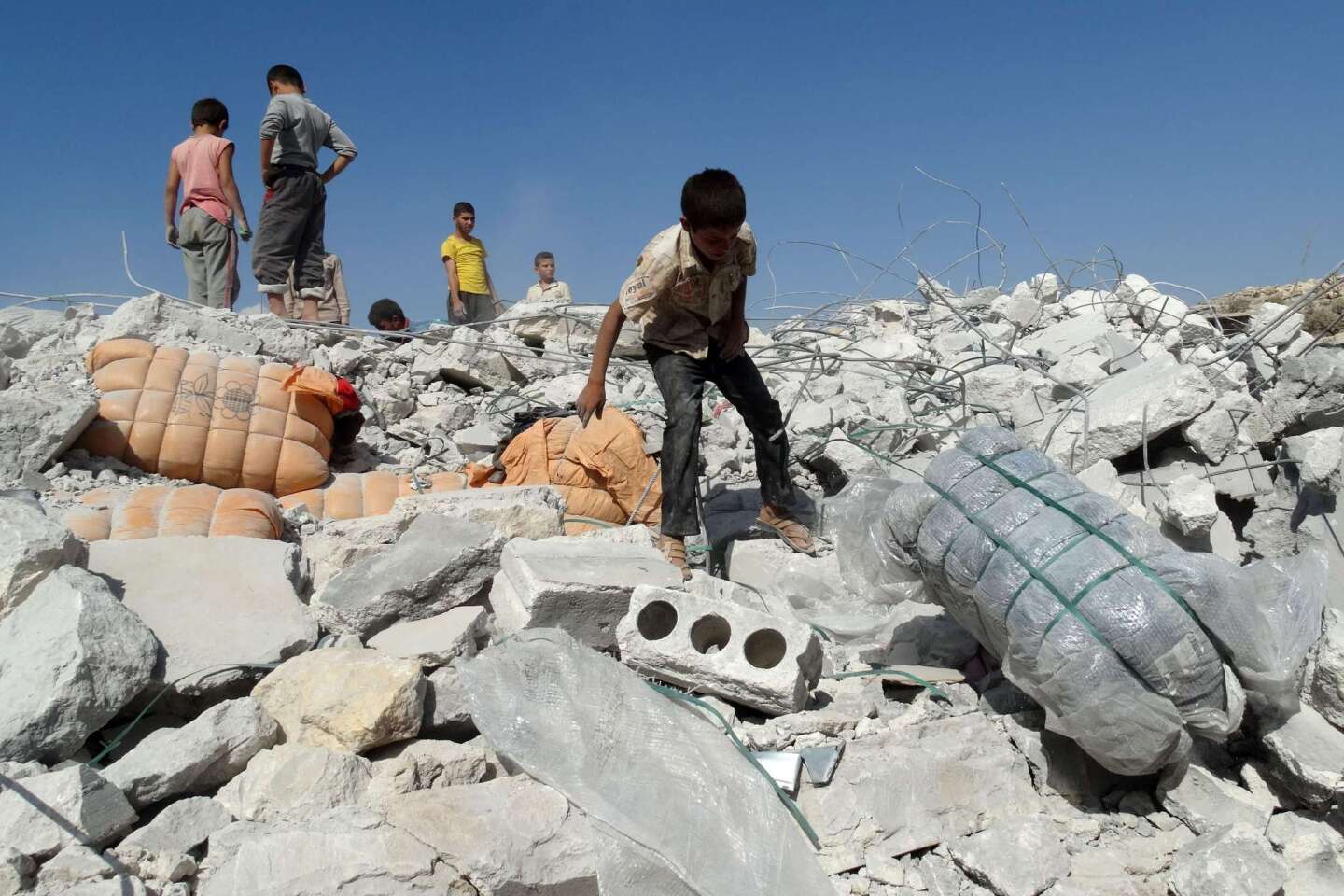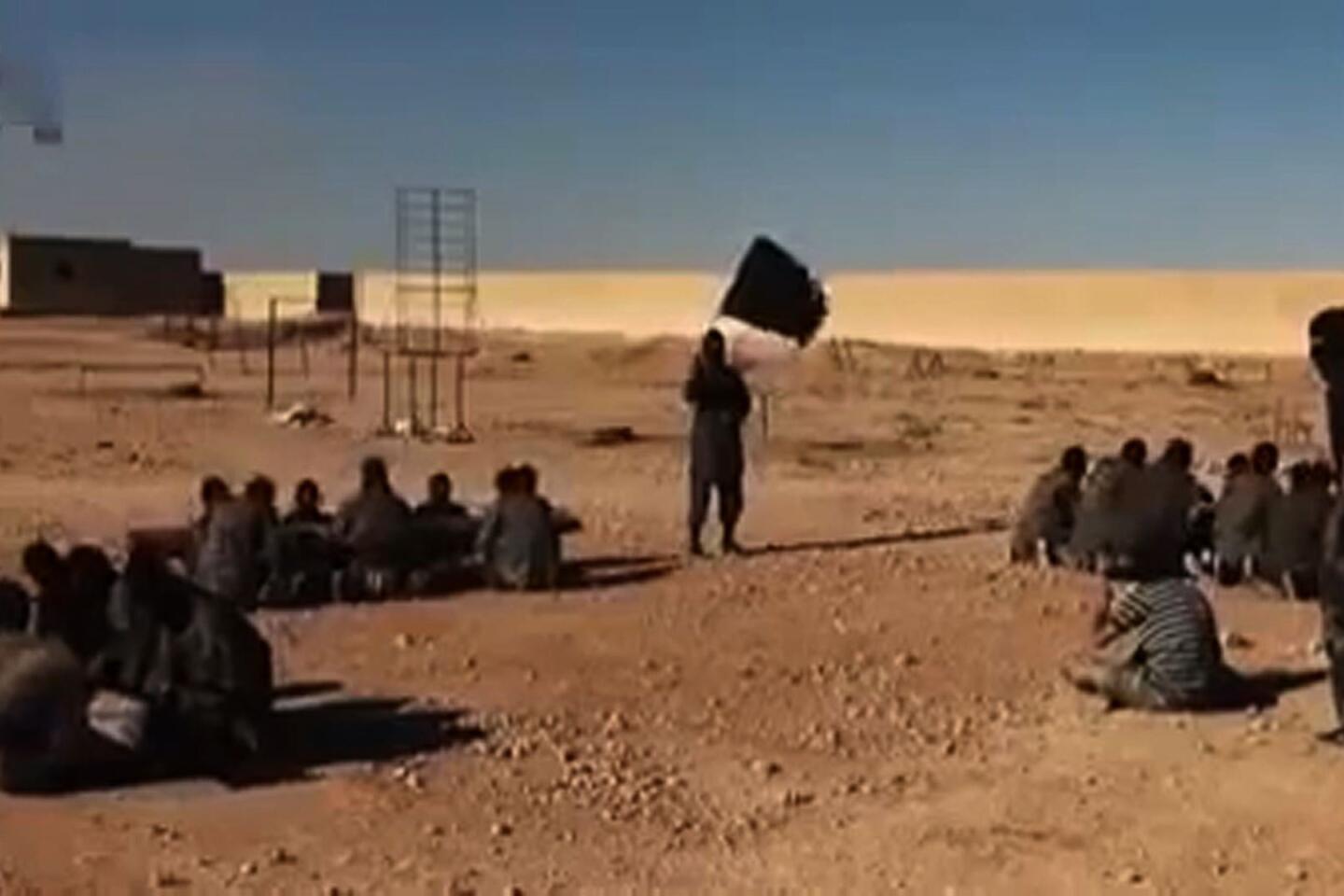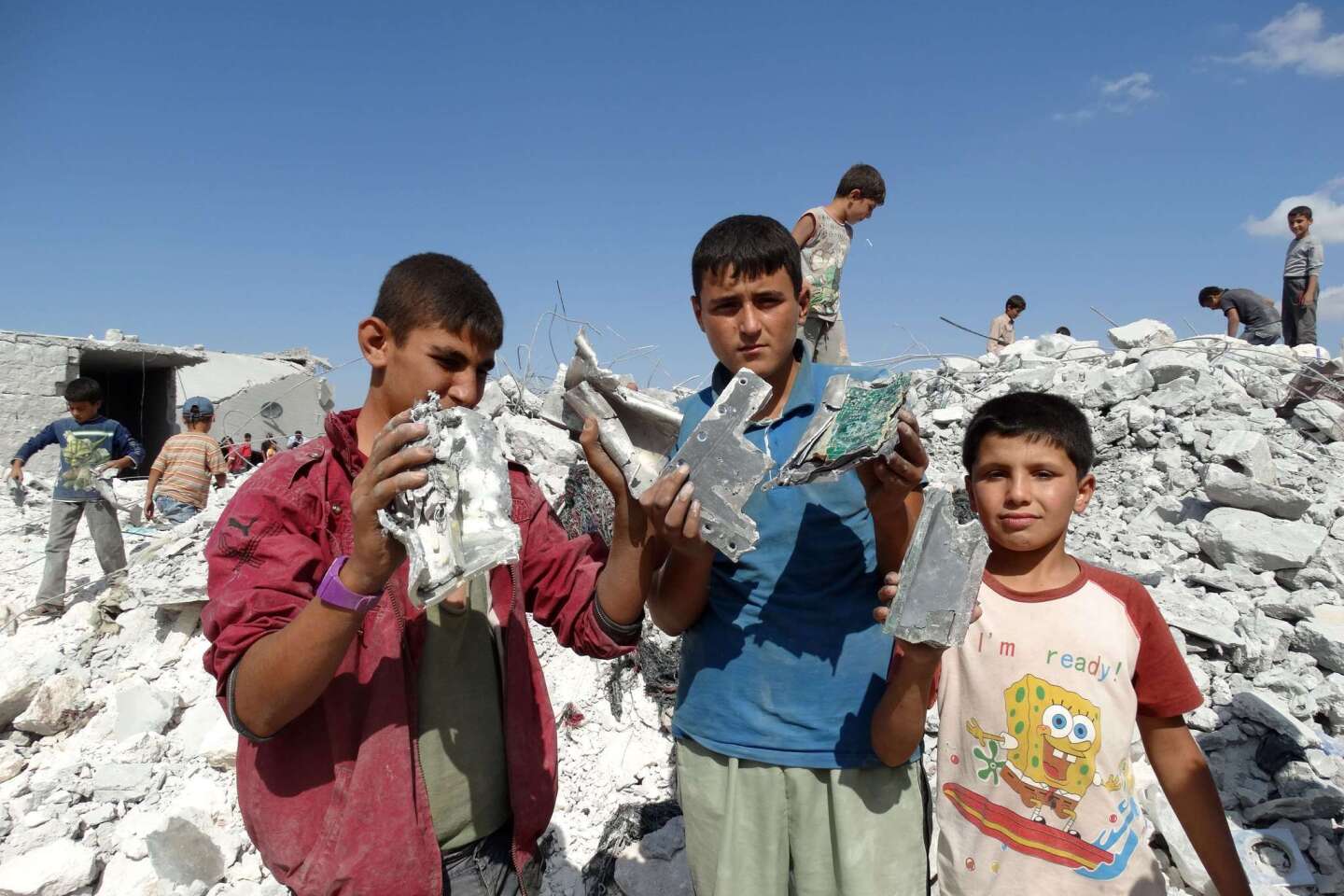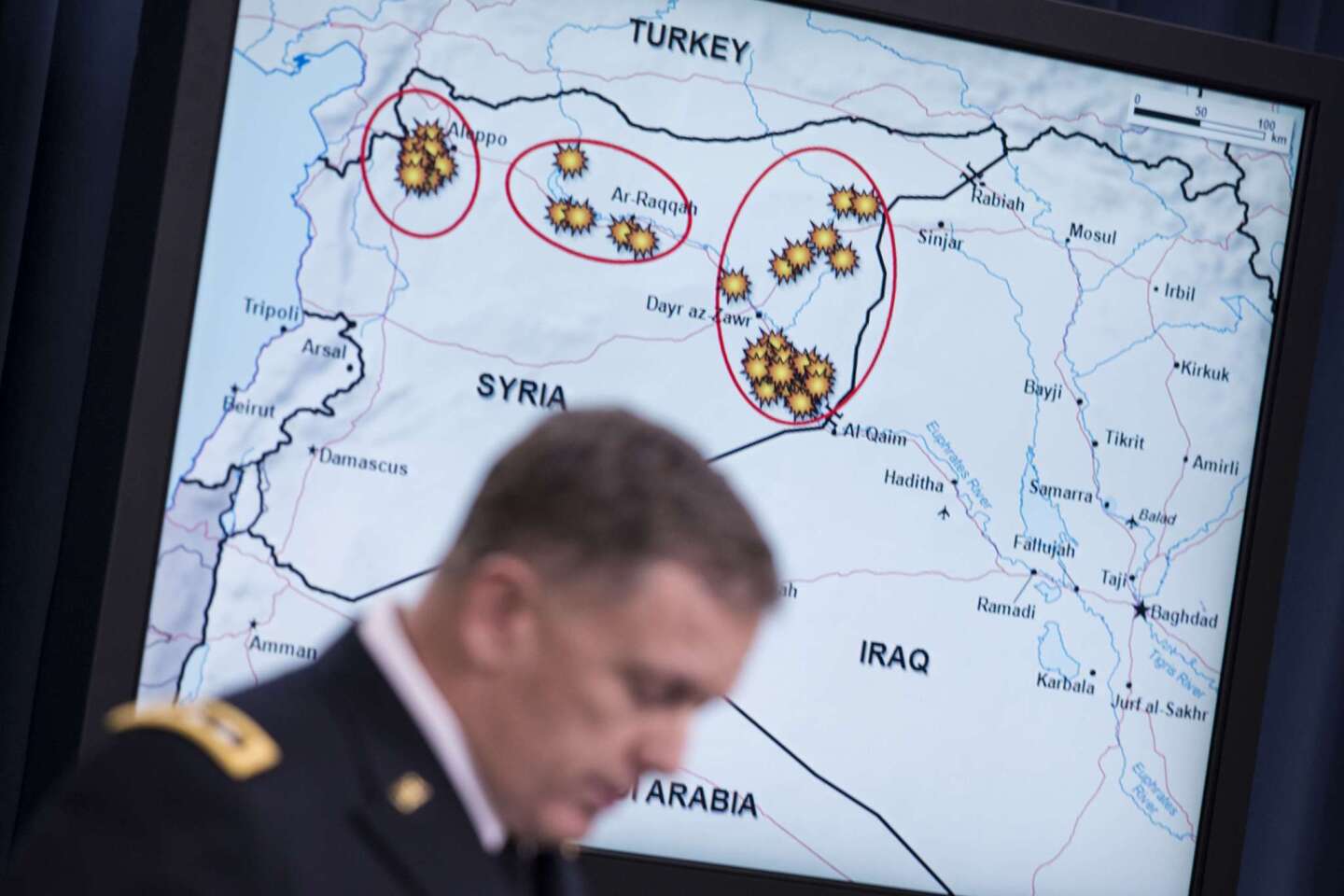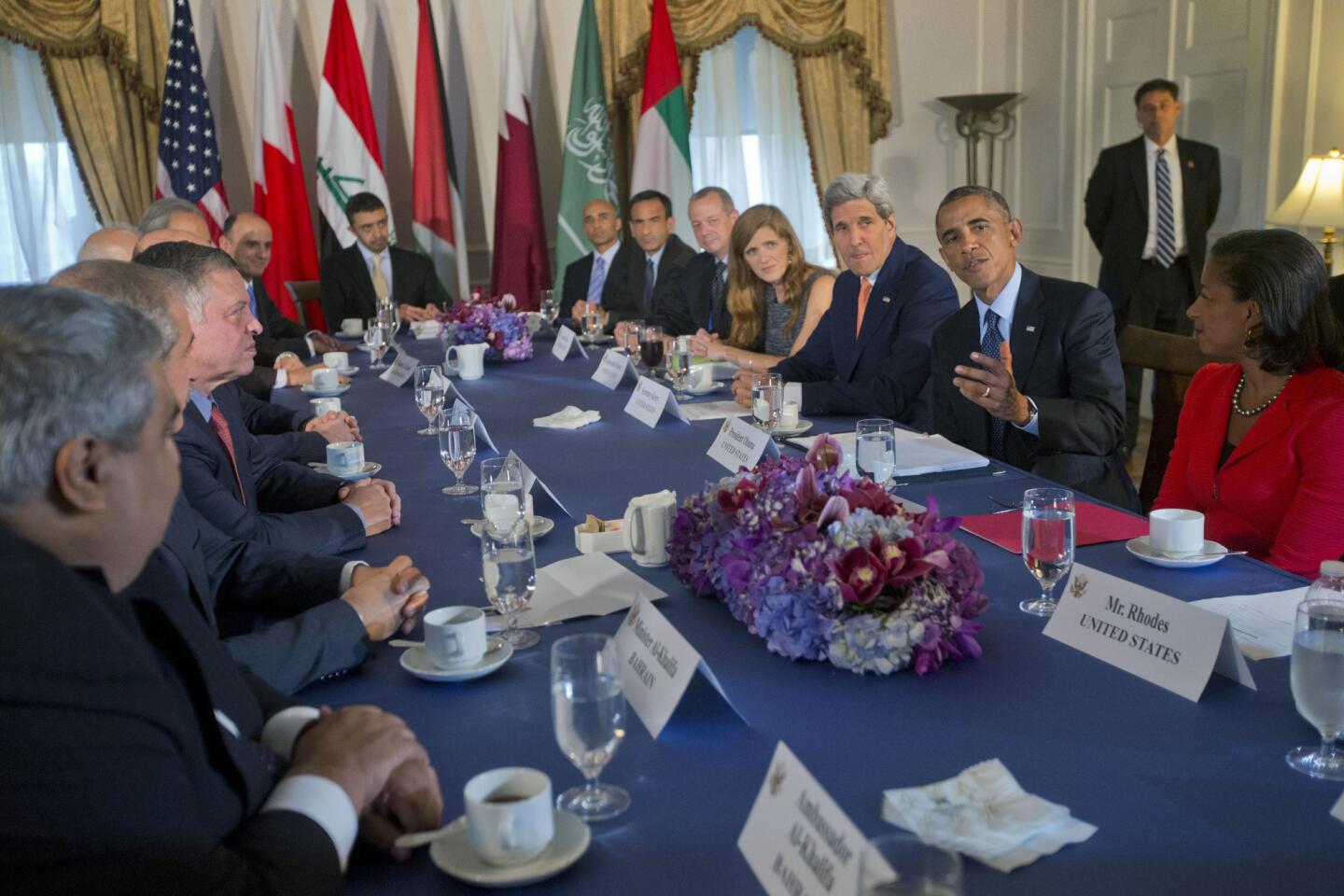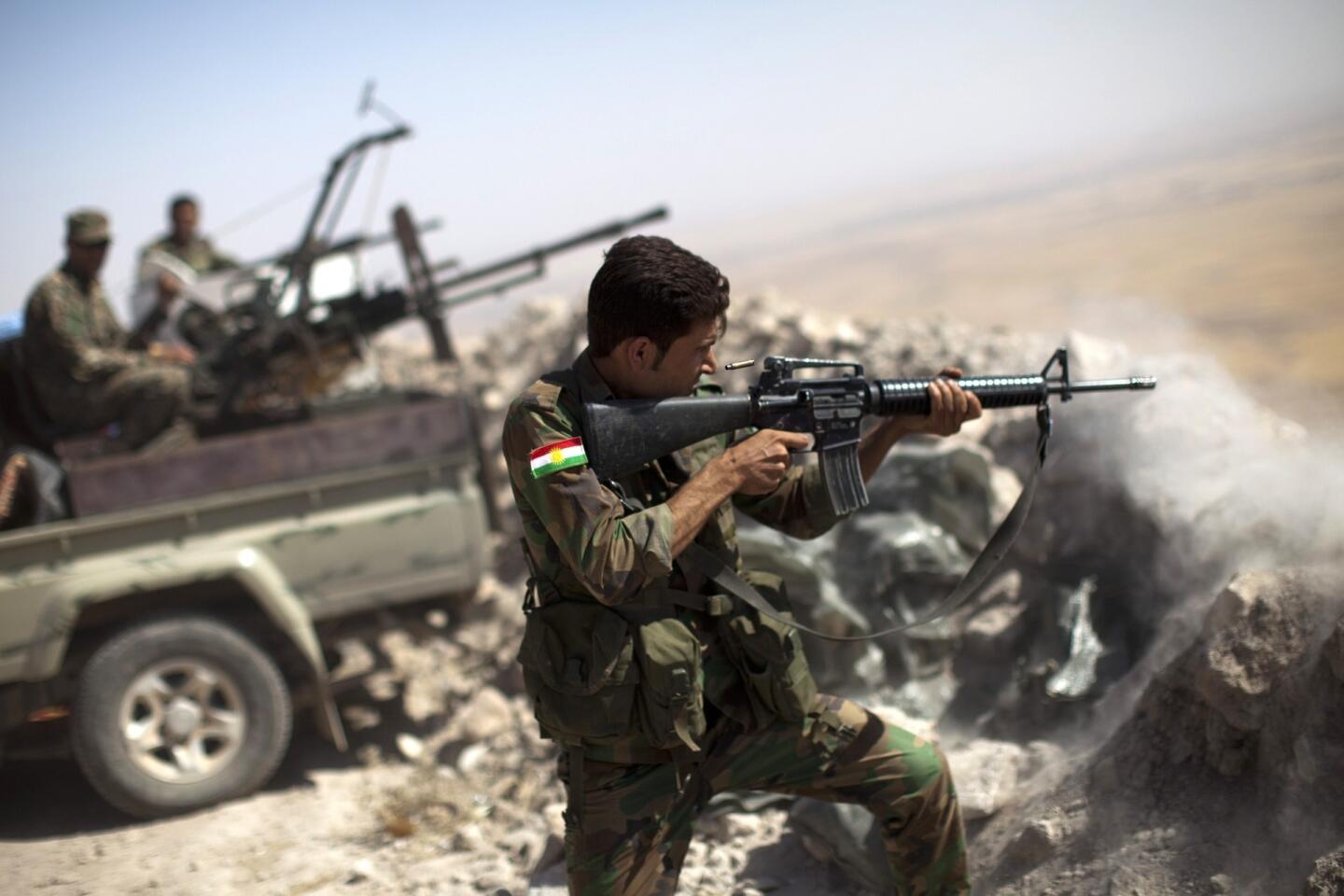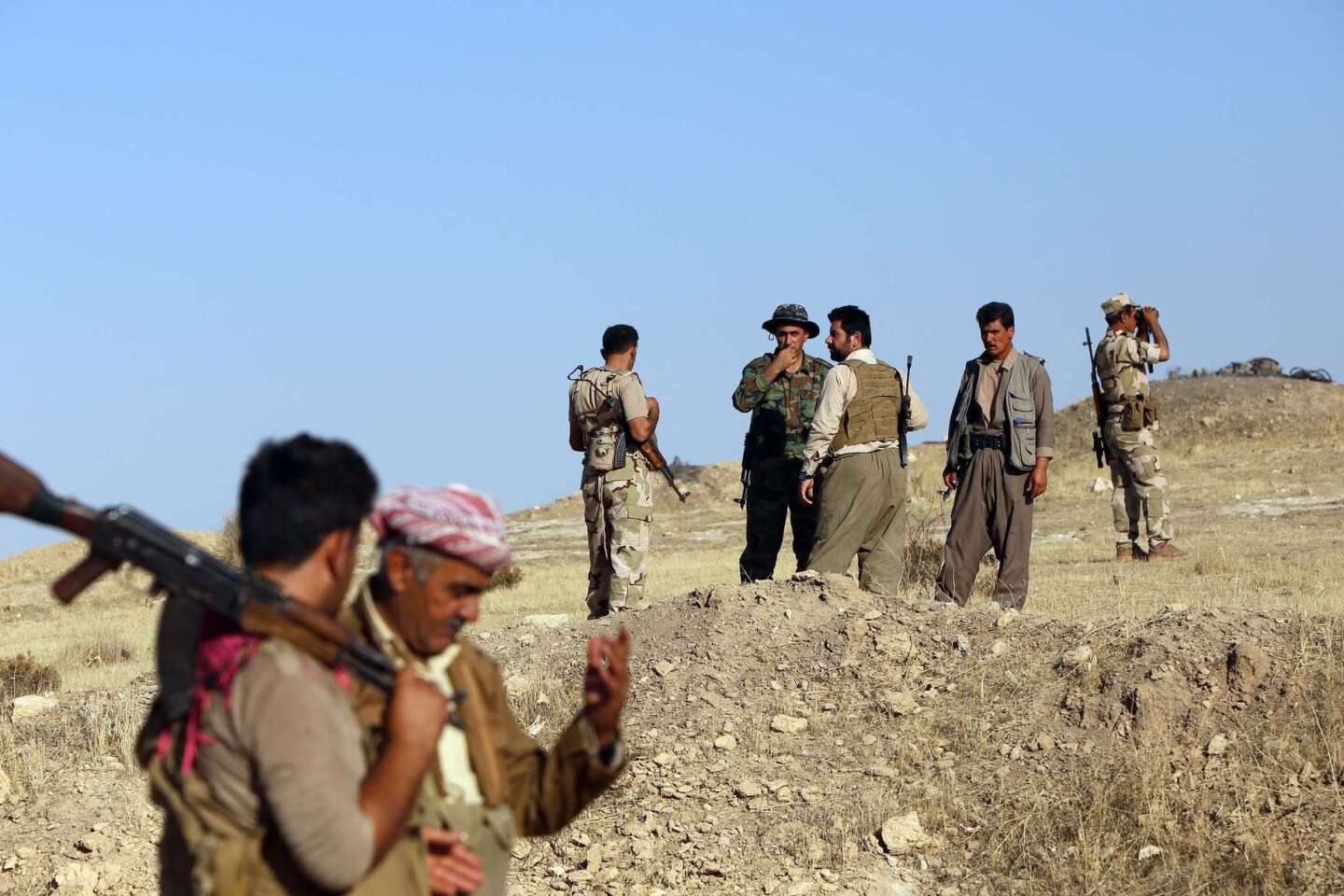Editorial: Is Obama’s Islamic State escalation justified?
- Share via
In his address to the nation almost two weeks ago, President Obama promised to use force against the armies of Islamic State “wherever they are,” and he specifically mentioned Syria. But Monday night’s airstrikes in that country came sooner and with more force than expected, targeting not only Islamic State but also the Khorasan Group, an Al Qaeda offshoot thought to be plotting attacks on Americans.
This major offensive raises questions about whether the United States (and a few Arab allies) are planning a prolonged air campaign in a country whose leadership did not invite intervention. Coupled with his successful lobbying of Congress to spend hundreds of millions of dollars to train supposedly moderate Syrian rebels, the airstrikes mark a major reversal for Obama.
Until recently he has assiduously resisted American entanglement in Syria’s civil war, and for good reason. The conflict pits President Bashar Assad, a secular dictator with innocent blood on his hands, against an assortment of opponents whose division into moderate and extremist factions isn’t nearly so neat or stable as some advocates of U.S. intervention suppose.
Obama changed his mind about intervention in Syria for the same reason he decided to launch airstrikes in Iraq and augment the U.S. military presence in that country: a sickeningly swift sequence of events in which Islamic State fighters routed Iraqi forces, terrorized Christians and other minorities and seemed poised to attack Baghdad. Obama also was influenced, understandably, by the horrific beheadings of two American journalists.
The result was his promise of a long-term campaign to “degrade and ultimately destroy” Islamic State. Obama said that wouldn’t require U.S. combat forces. But if the threat posed by Islamic State justifies a rethinking of Obama’s aversion to intervention in Syria, might it not also incline him to change his view about “no boots on the ground”? Gen. Martin Dempsey, the chairman of the Joint Chiefs of Staff, has said that if necessary he would recommend that U.S. military “advisors” accompany Iraqi troops into battle.
We find that prospect troubling. Islamic State is a heinous group, a threat to U.S. interests (though not, as far as we know, to the U.S. homeland) and a threat to the rights of those in the Middle East whom it despises as infidels. But is the threat serious enough to justify an ever-escalating role for the U.S. military in Syria and Iraq? Does the U.S. have a clear strategy and achievable aims? The case has yet to be made.
Follow the Opinion section on Twitter @latimesopinion
More to Read
A cure for the common opinion
Get thought-provoking perspectives with our weekly newsletter.
You may occasionally receive promotional content from the Los Angeles Times.
